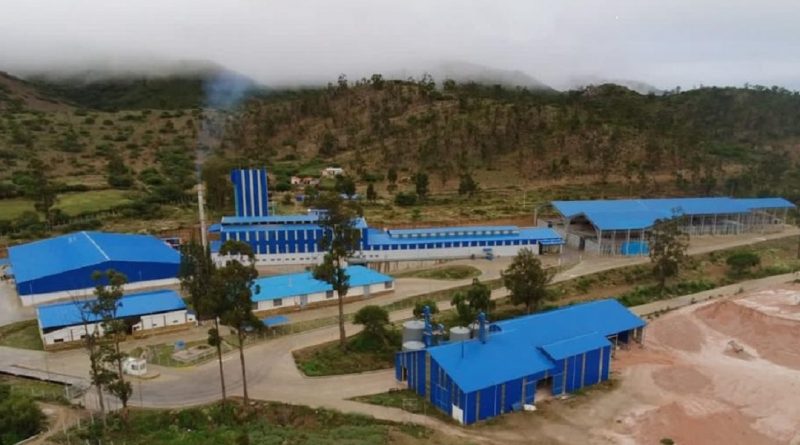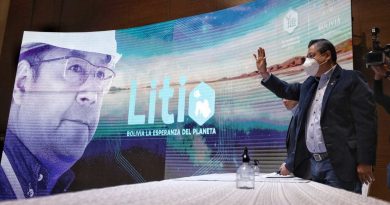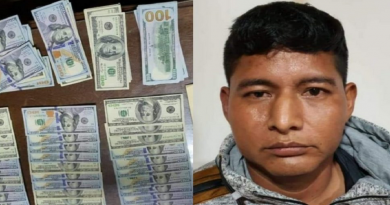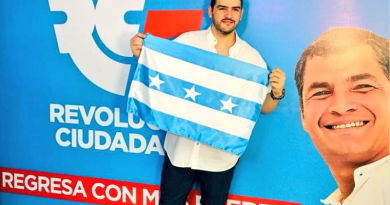Bolivia Launches Two State-Owned Manufacturing Plants
Bolivia has opened an an açai processing plant as well as a glass-making factory this past week, both will be publicly owned, joining the growing state industry sector. The move comes as the government of Luis Arce seeks to boost Bolivia’s economy, following the dramatic collapse triggered by free-market reforms of the coup regime that seized power in November 2019.
Following the victory of the Movement Towards Socialism in October 2020, Bolivia is rebuilding its former state-led economic model that existed under Evo Morales and Luis Arce, who was the Economy Minister at the time.
On Thursday, April 1st, President Arce inaugurated the glass factory, located in the Municipality of Zudáñez, Chuquisaca. The factory has the capacity to produce 40 thousand tons of glass, mostly bottles. The government created the state company ENVIBOL to administer what they say is the most modern glass factory in Latin America. Its profits will flow into the public purse, providing the state with revenues with which to invest in poverty reduction.
However, It is not a new initiative. The plant was first opened in May 2019, during the government of Evo Morales. The US-backed coup in 2019 saw the factory gates close as the new regime immediately paralyzed production in Bolivia’s state industries. In an attempt to shrink the size of the state, numerous public companies were closed, including the urea and ammonia plant in Bulo Bulo, the potassium chloride processing plant in Uyuni, and much more.
The second state plant that opened in recent days was in the Amazonian department of Pando on Saturday, April 3rd. This factory is new, it was built by, and will come under the control of, the state hydrocarbons company YPFB. Located in the Municipality of Sena, it will process the açai berry, an Amazonian fruit produced primarily in Bolivia and Brazil. It has become a high value trend among health enthusiasts and social media influencers in Europe and North America.
Financial analysts say that the market for this fruit is valued at over $US 720 million and is expected to grow to $US 2089.97 million by 2025. Consumers in the west consider it a superfood and pay high prices for products derived from the açai, such as ice cream, juice, paste, and even natural medicine.
The berry is generally not consumed in its natural form and requires a complex technical process to convert it into a commercial product. Usually, western companies import the raw material from small producers in the Amazon, and produce the value-added products in their own plants.
Bolivia has decided that it will build its own industrial capacity, under the management of the state, to produce these derived products and therefore export the pricier finished product, rather than the cheap raw material. The earnings from this will then also stay within the country.
President Luis Arce, when unveiling the new factory, underlined the importance of these investments in rebuilding Bolivia’s battered economy, saying;
“When we entered government, thanks to the popular support that we have received from the Bolivian people, we, unfortunately, found a bankrupt country, a country without resources, in debt” but added that now; “we come to Sena to inaugurate this plant, this plant, sisters and brothers, which represents the spearhead in the industrialization of açaí in our Department of Pando.”



